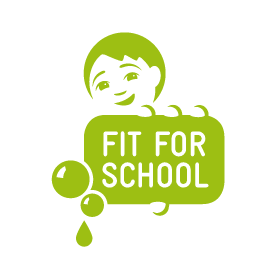key areas of implementation in cambodia
The major framework for the improvement of WASH in Schools through the Ministry of Education, Youth, and Sport are the Minimum Requirements Guidelines for WASH in Schools, which were developed by the School Health Department of the MoEYS with support by UNICEF and GIZ. This step-wise approach aims to support schools to gradually improve water, sanitation and hygiene according to their resources and capacities to eventually meet the national standards in the long run. In November 2016 the Guidelines were signed and endorsed by the Minister of Education. The guideline significantly contributes to partner alignment and coordination and clarifies roles and responsibilities for national and subnational units of the Ministry of Education, Youth and Sports.

The Minimum Requirements are now used as the reference for monitoring the current WinS situation in Cambodia and its progress. Together with the World Food Program, a hybrid WinS monitoring system, engaging all levels of MoEYS was piloted in Kampot province in 2017 and 2018, which served as a model for the first nationwide baseline at the end of 2018. All schools in Cambodia, as part of the annual school census data collection for the EMIS, were asked to complete the Minimum Requirements for WinS checklist, with a participation rate of over 99% of primary schools. The baseline revealed that almost 2,000 primary schools, which represent 28 percent of all primary schools in Cambodia, reach the SDG indicators for WASH in schools and manage to provide basic service delivery according to the SDG definition.
The Fit for School ‘School Community Manual’ and ‘Basic Orientation Video’ are key to capacity development and provide implementation guidance for stakeholders on school and community level and are currently being used to scale-up the program in Cambodia. Together with other materials, such as a study into the success factors of how to scale up Fit for School across Kampot province and a catalogue documenting creative cost-efficient group washing facility designs, the program materials are being used as training materials to instruct education officials, principals, and teachers on the national ‘Minimum Requirements for WASH in Schools’.

key achievements in cambodia
Cambodia was part of the Regional Fit Program Assessment Study, a 2-year longitudinal study that aims to determine the effects of the program interventions on health status, school attendance, and WASH indicators in schools. The government partners conducted the data collection with technical support from GIZ. The results are presented here.
At the end of 2018, all ten model schools from the program phase one, who haven´t received any material or financial support since 2015 still implemented the program, illustrating the sustainability of the approach.
Now about 62% (193 out of 306) of primary schools in Kampot implement daily group hygiene activities after the efforts of the provincial and district offices of education to improve school management for healthier school environments.

IN PARTNERSHIP WITH:



